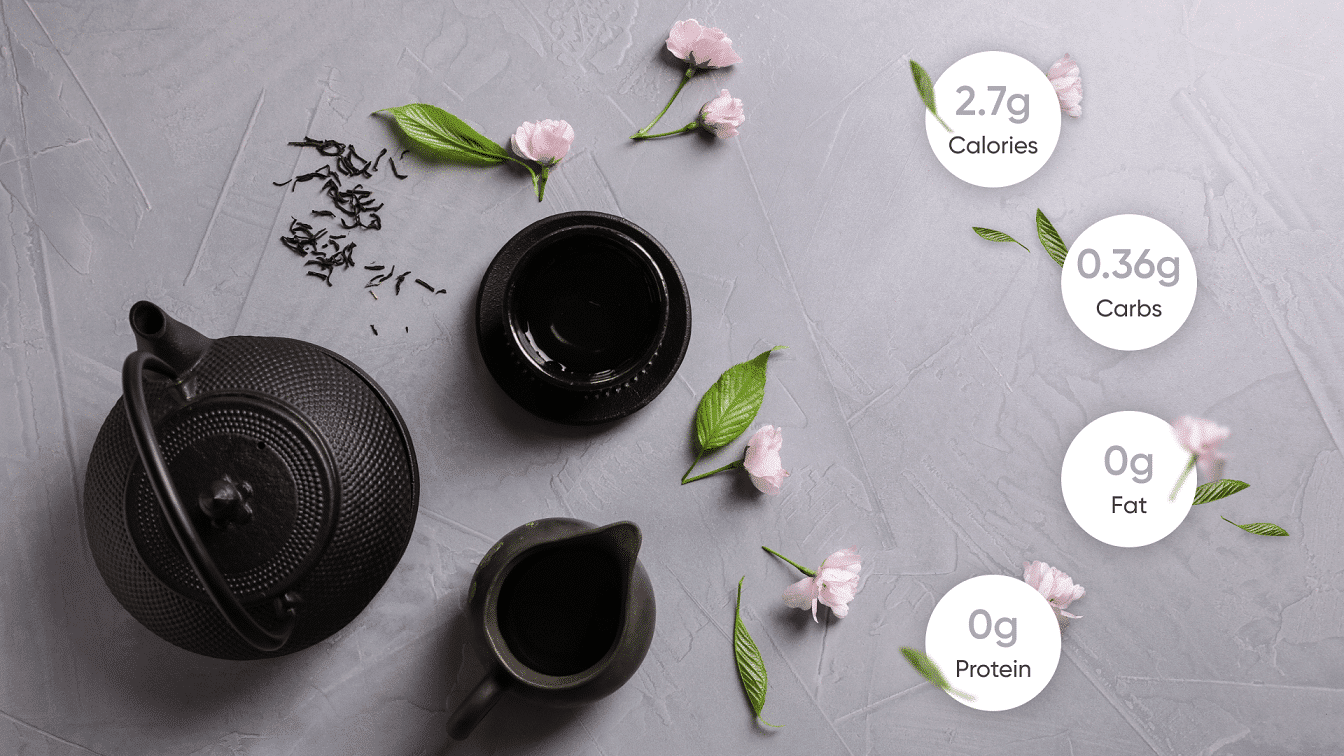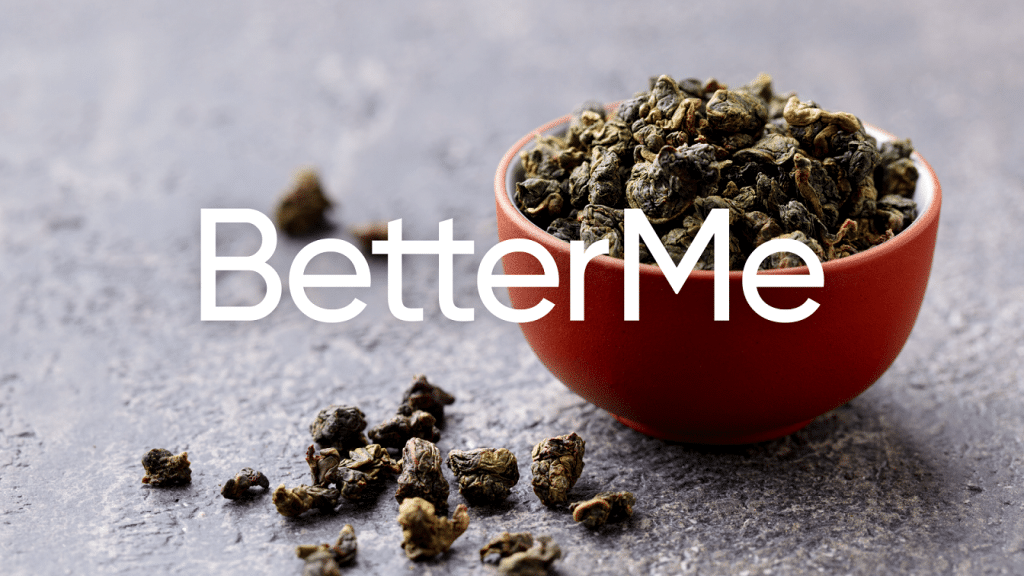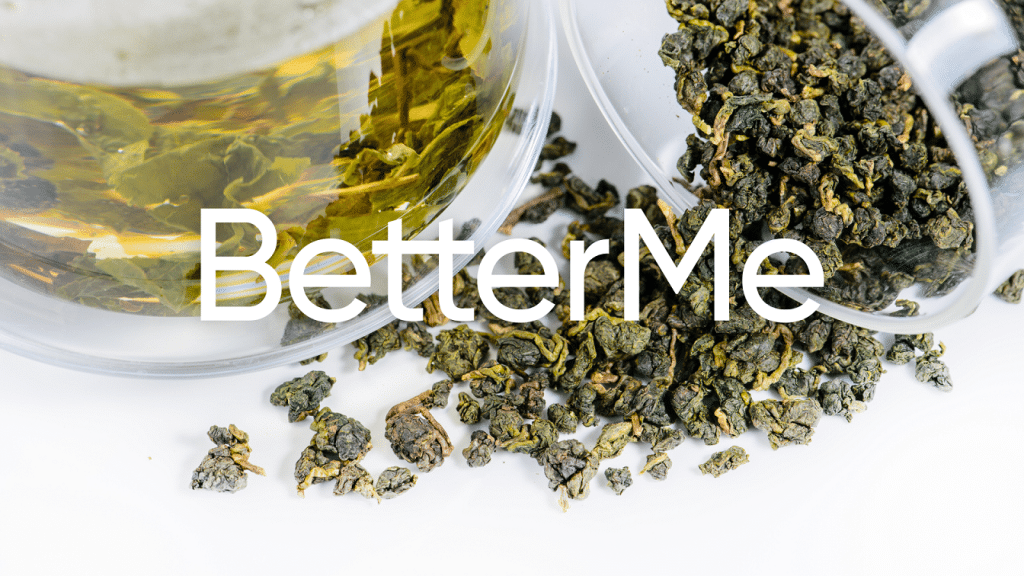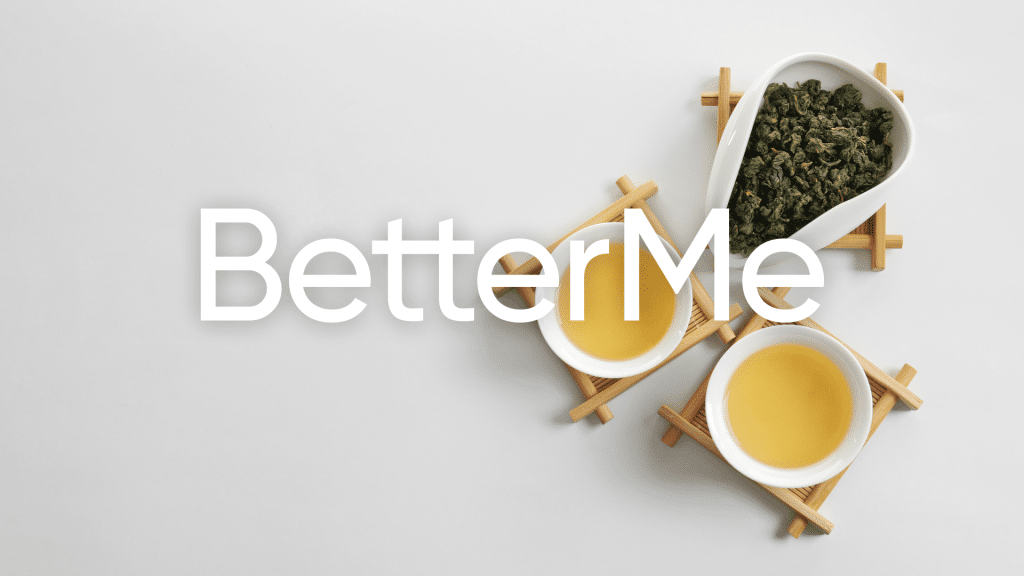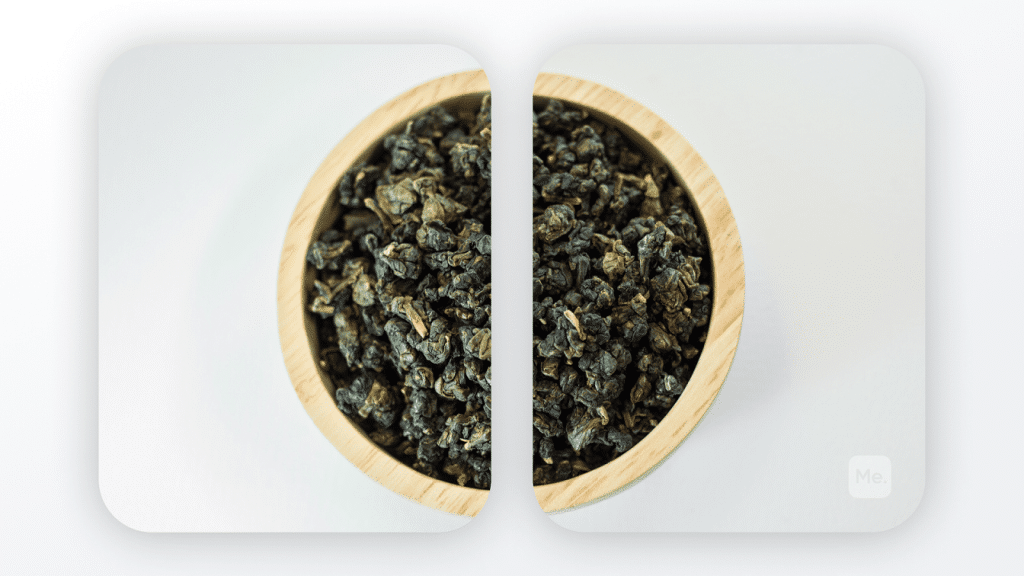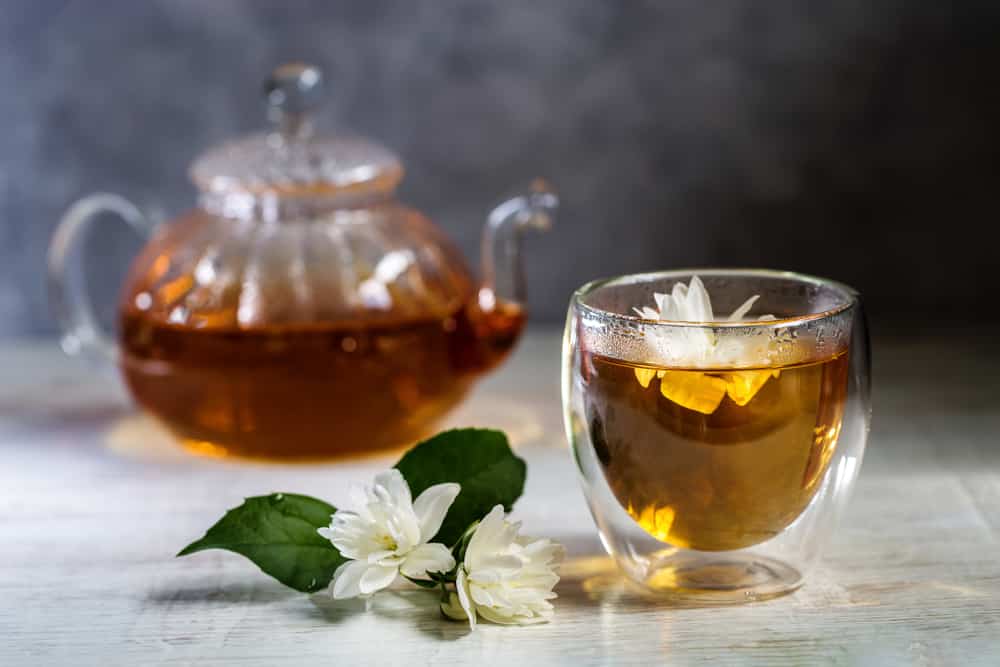Traditional Chinese oolong tea is one of the world’s best teas. Most people consider it a half cast of green and black tea since it is half-fermented. It is as fragrant as green tea and as refreshing as black tea. Due to this, many people have found themselves opting for it. However, nothing draws more people to this tea than the extensive list of oolong tea benefits. It is said to be very helpful in several things, which we shall discuss throughout this read. Let us get started!
What Is Oolong Tea?
Asian countries are known for their rich culture and heritage. However, one of the most significant aspects of their food culture is tea consumption. So, regardless of the event or time of the day, most people will choose to have a cup of tea.
One of the unique types of tea that most people drink in Asian countries, mainly China and Taiwan, is oolong tea. It is made from the same leaves used to make black and green teas (2).
However, although it is an example of a true tea, it happens to be prepared differently than other true teas (6). The difference lies in harvesting and processing. Oolong tea happens to be partially fermented (6).
Oolong Tea Nutrition Facts
Are you thinking of adding this tea to your diet plan? If so, then you need to go through the nutritional profile of oolong tea. You must familiarize yourself with the nutritional profile of any food or beverage to determine if you are getting enough nutrients.
Remember that you are required to have a certain percentage DV of different nutrients. So, knowing the exact nutrients you are getting from this tea and their percentages will come in handy in determining if you are consuming enough of a nutrient.
One brewed cup of this tea (roughly two grams of oolong tea leaves and eight ounces of water) has the following nutrients (2):
- Calories- 2.4
- Carbs- 0.36 g
- Fat- 0 g
- Protein- 0 g
However, if you were to take 100 ml of oolong tea from tea bags, the nutritional profile would change. According to the United States Department of Agriculture (USDA), drinking oolong tea would not provide any calorie, protein, fat, or carb content (3).
It means that the nutritional profile will vary depending on the amount and form of oolong tea that you use. Another nutritional fact about oolong tea is that it contains small amounts of other vitamins and minerals like magnesium, potassium, niacin, manganese, and sodium.
These may result in added nutritional health benefits. For example, because the tea contains potassium, you benefit from the advantages of potassium in your body. Potassium helps with nerve functioning, muscle contraction, movement of nutrients to cells, removal of waste products from cells, and maintenance of a regular heartbeat (5).
Lean and toned up body isn’t just a far-fetched fantasy. Check out the BetterMe app and watch it propel your weight loss journey into high gear!
Oolong Tea Benefits
Experts have revealed that drinking oolong tea might have the following benefits:
Prevents Obesity
A 2009 study was conducted to determine if oolong tea has anti-obesity effects. So, the study served 102 overweight and obese participants with a total of eight grams of oolong tea a day for six weeks (1).
Their body fat was recorded before and was determined by their waist, weight, and height measurements. The researchers also took note of the effects of consuming tea on plasma triglyceride (TG) and total cholesterol (1).
The study findings revealed that the participants who consumed oolong tea over the six weeks had decreased TG and cholesterol levels (1). This builds upon in vitro studies which found that the oolong tea extract inhibited pancreatic lipase, which may be the mechanism by which it might prevent hyperlipidemia (1).
So, the researchers concluded that oolong tea could help decrease body fat and weight by improving lipid metabolism (1). Moreover, if taken regularly, experts hypothesize that this tea might help prevent obesity (1).
Read More: Black Tea Facts, Health Benefits And Side Effects
Mental Alertness
Some people also consume oolong tea for its mental alertness benefits. The tea contains caffeine, which is linked to heightened awareness, energy, and thinking skills (4). These effects are known to increase as the caffeine levels also increase.
However, this is not an excuse for you to consume excessive amounts of oolong tea. As we shall see later on in this read, too much of this tea can result in several side effects and complications. So, it is vital to stick to the recommended servings by your nutritionist or doctor.
Weight Management
As seen from its nutritional facts, oolong tea has almost no calories. It means that dieters can consume this diet to help maintain an ideal weight or shed some pounds. However, you must also remember to make other changes that can help promote weight loss.
Oolong tea benefits weight loss if you also make healthier lifestyle changes. So, for example, you can start an exercise program, practice portion control and mindful eating, and drink water regularly on top of drinking this tea. It would be best if you talked to your doctor for more guidance on healthy weight loss.
Reduced Disease Risk
Oolong tea is also believed to help reduce the risk of several diseases. Although there is no concrete scientific evidence to support this, some people still consume this tea with the belief that it helps reduce the risk of:
- Diabetes. Some studies suggest that taking oolong tea for a month can help lower blood sugar in individuals with type 2 diabetes (4). As mentioned above, there lacks sufficient evidence to support this.
- Eczema. Another theory that is yet to be validated is that consuming oolong tea can help manage eczema symptoms within a week or two (4).
- Dysmenorrhea. Dysmenorrhea is also known as menstrual cramps. Although this tea has not been found to help relieve menstrual cramps, some women believe it does and continue to take it when cramping.
- High Blood Pressure (Hypertension). Some studies among Chinese individuals suggest that consuming oolong or green tea can help reduce hypertension risk (4). There is insufficient evidence to support this theory.
- Autism. Although some people believe that drinking oolong tea can help improve autism symptoms, there lacks concrete evidence to support this.
- Osteoporosis. According to WebMD, some evidence shows that drinking oolong tea for over ten years can help with stronger bones and increased bone mineral density (4).
- Tooth Decay And Rotting. Drinking this tea is also believed to help in reducing or preventing tooth decay and rotting. Until there is credible evidence to support this theory, it remains up in the air.
- Ovarian Cancer. WebMD states that women who have been drinking oolong, green, and black tea regularly have a reduced risk of ovarian cancer compared to those who don’t (4). The rationale behind this theory is that oolong tea contains antioxidants that protect your cells from free radicals known to cause cancer (1).
BetterMe app will kick you out of the mental funk, shake off your extra weight, rid you off your energy-zapping habits, and help you sculpt the body of your dreams. Intrigued? Hurry up and change your life for the better!
Oolong Tea Side Effects
Even though this type of tea has several health benefits, as we have seen above, unfortunately, it also has several risks. You may experience several side effects after consuming oolong tea for a while due to its high caffeine content, including (2):
- Insomnia
- Rapid heartbeat
- Headaches
- Abdominal pain
- Palpitations
- Nausea, vomiting, and diarrhea
- Nervousness
- Tremors
- Increased urge to pee and urine flow
The side effects are way more serious for individuals with several health conditions, including (2):
- Diabetes
- Anxiety disorders
- Irritable bowel syndrome
- Bleeding disorders
- Hypertension (High blood pressure)
- Osteoporosis
- Glaucoma (Group of eye conditions)
Drinking oolong tea also affects iron absorption and increases your risk of iron deficiency anemia. To avoid all of the above side effects, WebMD suggests you try the following (4):
- Consultation. Make sure you talk to your doctor if you are interested in taking this tea for purposes such as weight loss. Again, consult with your doctor if you are taking medications.
Some drugs interact with this tea and cause severe problems. These include blood-thinning medications like heparin, stimulants like amphetamines, and herbs or supplements like clove and Ginkgo biloba (2).
- Limiting Oolong Tea Consumption. You also need to reduce the number of cups you take to reduce these severe side effects. WebMD advises pregnant women to limit themselves to taking less than three cups a day to keep their caffeine intake under 200 mg (4). Anything more than this can increase the caffeine in your blood and potentially lead to low birth weight and premature birth (2).
Read More: Green Tea Facts, Health Benefits And Side Effects
The Bottom Line
Drinking oolong tea has been linked to several health benefits. For example, it may increase mental alertness, prevent obesity, and reduce the risk of several diseases. However, there is insufficient evidence for its help in reducing the risk of several diseases like eczema, osteoporosis, ovarian cancer, and autism.
Based on these oolong tea benefits, you may consume it for a specific goal. For example, you may consume it for weight management due to its low-calorie content. However, before you do that, make sure you talk to your doctor.
DISCLAIMER:
This article is intended for general informational purposes only and does not address individual circumstances. It is not a substitute for professional advice or help and should not be relied on for decision-making. Any action you take upon the information presented in this article is strictly at your own risk and responsibility!
SOURCES:
- Beneficial effects of oolong tea consumption on diet-induced overweight and obese subjects (2009, pubmed.ncbi.nlm.nih.gov)
- Health Benefits of Oolong Tea (2020, webmd.com)
- Oolong Tea (2019, fdc.nal.usda.gov)
- Oolong Tea (2021, webmd.com)
- Potassium (2021, medlineplus.gov)
- What are the health benefits of oolong tea? (2017, medicalnewstoday.com)

